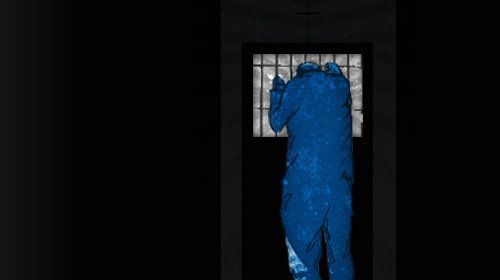NY State Council of Churches Joins Faith Voices Condemning Longterm Solitary


By The Rev. Dr. Robert A. White, Interim Executive Director, New York State Council of Churches
We like to think that most New Yorkers wouldn’t stand for regretful policies that clearly subvert human rights. We wouldn’t tolerate those voter suppression laws or invasive ultrasounds that threaten democracy and demean women in some other states.
But abuses to human dignity and rights, horrific and often hidden, still lurk in enlightened places -- until the public takes notice! And so it happens that New York ranks at or near the top of all states in the percentage of prisoners subjected to prolonged solitary confinement. About 4500 NY inmates are enduring it today! Fortunately, New Yorkers are becoming aware of how cruel, unusual –yes, medieval – this form of punishment is.
The New York State Council of Churches (NYSCC), representing nine Protestant denominations with about 6000 congregations in the state, has become aware and deeply concerned. Last month our governing board approved a statement condemning prolonged solitary confinement as “inhumane, torturous, degrading to the human spirit, and contrary to the will of God.”
Our consciousness was raised when the National Religious Campaign Against Torture invited us to collaborate in their campaign against excessive solitary confinement in New York State. Their resources educated us, as did secular press reports. Others, like the New York Civil Liberties Union, state the facts compellingly (See their new report Boxed In: The True Cost of Extreme Isolation in New York’s Prisons).
“Disciplinary segregation,” the Corrections Commission jargon, inflicts physical and psychological suffering tantamount to torture. It is often imposed arbitrarily, repeatedly and for minor offenses. It is an abuse of power by agents of the state acting on our behalf!
What the churches bring to this campaign against institutionalized torture is our perspective and energy as people of faith. Our scriptures teach that human beings are made in the Image of God. That ancient Hebrew term invests every person with inestimable dignity. To abuse a person is to abuse God as well! Biblical scholars agree that the divine image in a person is more than mental reasoning or moral conscience. The essence of God’s image is our dependence on relationships—with God and with other people—to be and to become whole. We cannot be human without the care and corrections of a community! To subject anyone, especially an offender, to extreme isolation is cruel and worse. It is a sacrilege!
Christian theology moved us to compassion and action. Our unique relationship with Protestant prison chaplains also played an important part. For almost 50 years NYSCC has served as the agency charged to recruit, certify and support Protestant chaplains in state institutions. Several prison chaplains verified for us the abuses reported elsewhere. And they personalized them with stories of individual inmates suffering prolonged isolation for trivial offenses or pastoral relationships abruptly severed when inmates are suddenly removed to isolation cells in another part of the state.
As we thought how to involve and energize our members and congregations in response, the chaplains suggested a faithful way. They referred to “The Loaf,” another degrading isolation punishment reported in the press. If inmates continue to offend in solitary, they are treated to “The Loaf”—three meals a day of hard-baked bread with raw cabbage. “It’s like eating a huge dog biscuit,” one chaplain told me. Another said, “Let’s get the recipe! Let’s invite our congregations to bake and break this loaf for Communion, to celebrate the Holy Eucharist in solidarity with prisoners isolated from the very community they need to become whole.”
We plan to do this. It’s not good for anyone to be alone too long. People need to take notice and act. In the Christian community, energy for action comes from another Loaf. We call him “the Bread of Life.” In Communion we remember a prisoner named Jesus once tortured and broken so captives may be freed and the world made whole.

